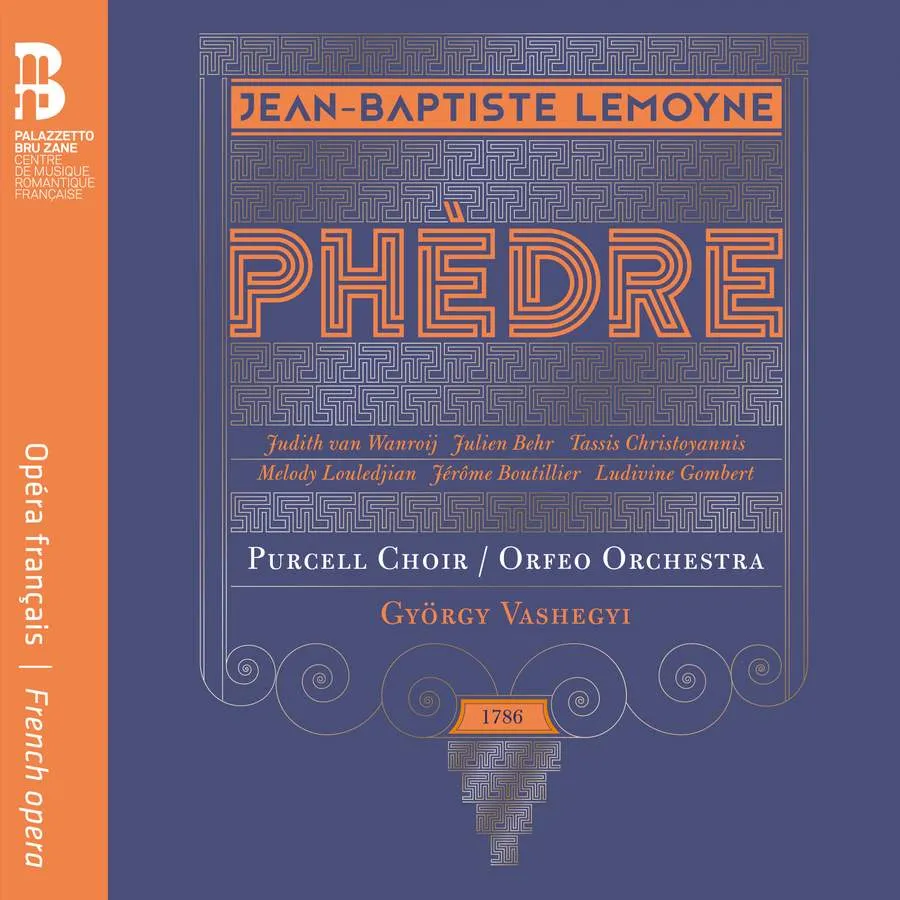
Lemoyne Phèdre Judith van Wanroij, Julien Behr, Tassis Christoyannis, Melody Louledijan, Jérôme Boutillier, Ludivine Gombert; Purcell Choir; Orfeo Orchestra/György Vashegyi BruZane BZ1040 136:08 mins (2 discs)
Palazzetto Bru Zane once again places us in its debt with another worthwhile revival of a neglected tragédie lyrique.
Jean-Baptiste Lemoyne (1751-96) wrote several works for the Paris Opéra, of which Phèdre, premiered at Fontainebleau in 1786 and based (like Rameau’s 1733 Hippolyte et Aricie) on Racine’s play, was a long-term success, being revived more than 70 times up to 1813.
Following some initial criticism, Lemoyne revised it, making cuts in the first act, but it is the original version that has been recorded here.
Lemoyne demonstrates impressive integrity as a musical dramatist. Though the general style will be familiar to admirers of Gluck’s French operas, there are pre-Romantic gestures, including menacing suggestions of the tragedy to come in the overture and a powerfully sombre ending.
The work owed part of its success to the creation of the title role by Lemoyne’s protegée Antoinette Saint-Huberty – a remarkable singing actress whose extraordinary life ended when she and her husband were murdered in Barnes in 1812.
The central performances all stand up to scrutiny. Judith van Wanroij’s Phèdre hones in on the text, its meaning carefully embedded in the composer’s setting; exact and discriminating, she allows the drama to take her voice to extremes.
With Melody Louledjian’s strong Oenone, Julien Behr’s firm tenor well cast as Hippolyte and Tassis Christoyannis’s Thésée ideally focused, she is fittingly supported.
Performances of character and sensitivity are provided by the Hungarian period-instrument orchestra and its attendant choir, while the conductor maintains musical and dramatic dynamism.
George Hall